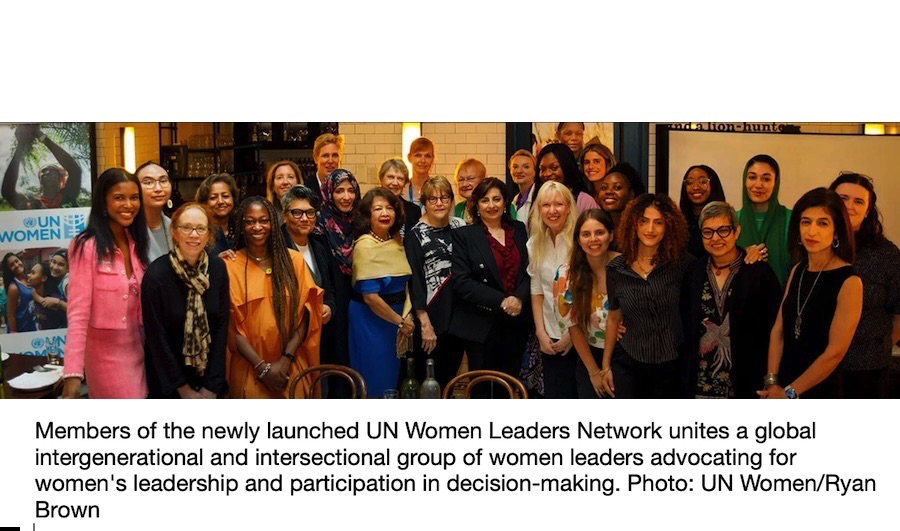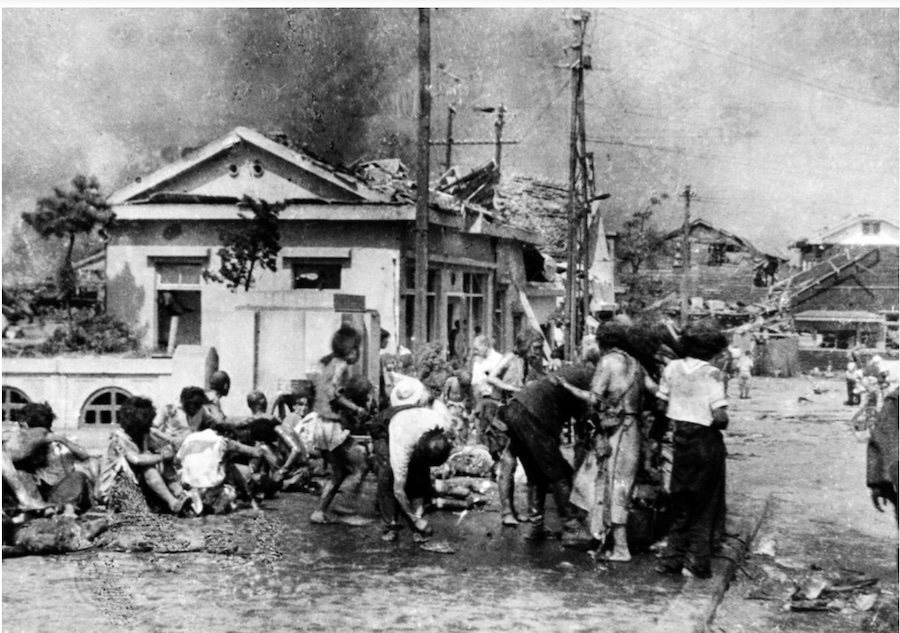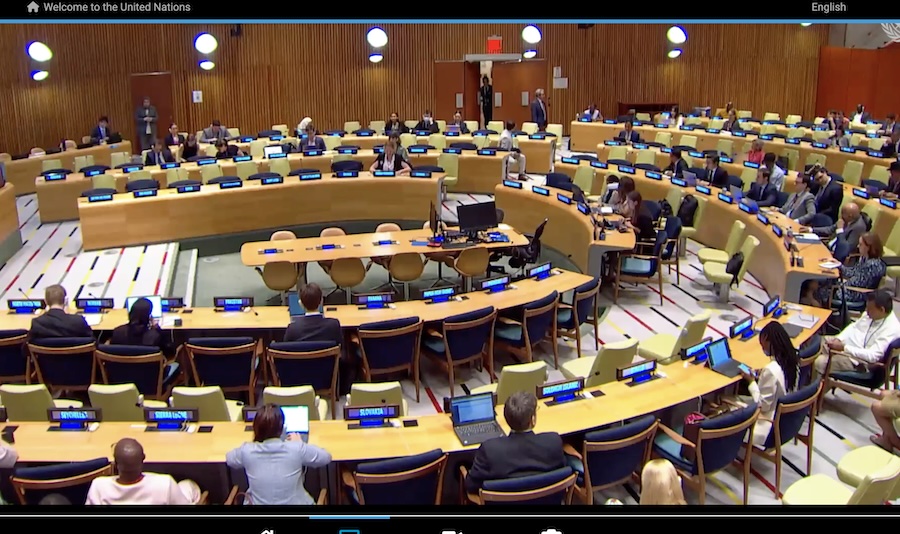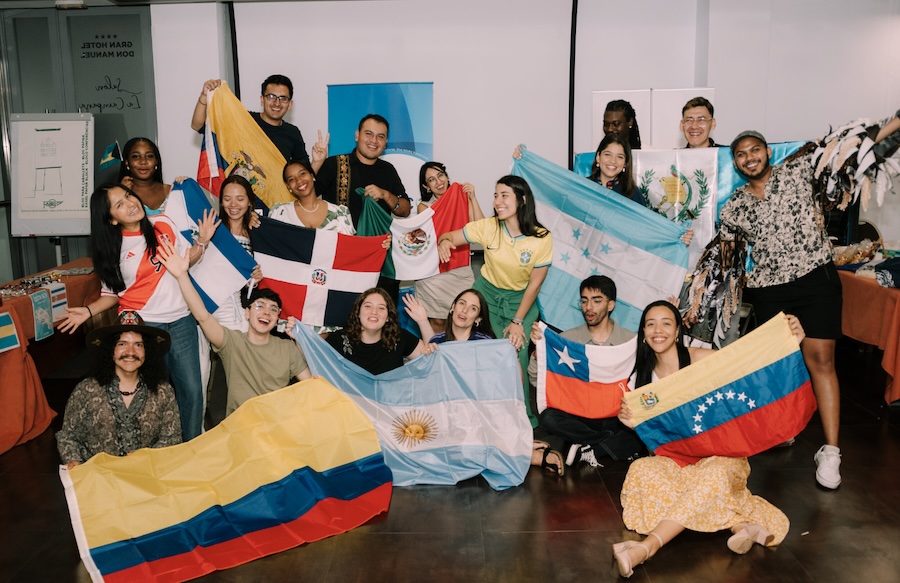FREE FLOW OF INFORMATION
An e-statement from the United Nations High-Level Forum on the Culture of Peace
Statement on behalf of the European Union and its Member States by Ambassador Hedda Samson, Deputy Head of Delegation of the European Union to the United Nations High-level Forum on the Culture of Peace: Cultivating and nurturing the culture of peace for present and future generations
(Editor’s note: The following statement is a welcome change from the opposition of the European Union when the culture of peace resolution was submitted by UNESCO to the UN General Assembly in 1998.)

EU Spokesperson, Hedda Samson. Frame from minute 44 in the video of the Forum
New York, 2 August 2024
– CHECK AGAINST DELIVERY –
(Editor’s note: By checking the published e-statement against the delivery in the video of the Forum, one can see that it was delivered as written here including five minor additions to the e-statement marked here in boldface and three minor omissions marked in italics.)
Mr President,
I have the honour to speak on behalf of the European Union and its Member States.
The Candidate Countries North Macedonia, Serbia, Albania, the Republic of Moldova, Bosnia and Herzegovina and Georgia, as well as Andorra, Monaco and San Marino align themselves with this statement.
As we commemorate the 25th anniversary of the adoption of the Declaration and Programme of Action on a Culture of Peace, the European Union expresses its full support for the Culture of Peace agenda.
This agenda not only reflects our history and core values, but it also guides our actions – within and beyond our borders.
– Concretely, this means that we are deeply committed to the respect for life and dignity of each human being without discrimination or prejudice.
– It means that we are attached to non-violence, the peaceful settlement of conflicts and to democratic participation. North Macedonia, Serbia, Albania and Bosnia and Herzegovina continue to be part of the Stabilisation and Association Process.
– It also means that we are deeply committed to solidarity and cooperation for development, and to the promotion and respect of human rights as well as equal rights and opportunities for all.
The Declaration and Programme of Action on a Culture of Peace with its eight pillars remains as valid today as it was in 1999. Even if we have witnessed tremendous change in societies worldwide. Even if we are facing new global challenges.
(continued in right column)
Question(s) related to this article:
What is the United Nations doing for a culture of peace?
(continued from left column)
As we have gathered at this high-level event, let me convey three messages:
– First, pursuing a Culture of Peace can help us bridge the divides across and within societies worldwide. And it can help to advance the full implementation of the Sustainable Development Goals.
– Second, we have all committed in the Declaration on a Culture of Peace to support the free flow of information and knowledge, to support the important role of the media, to ensure freedom of the press and freedom of information and communication and protection of civic space (online and offline).
– Third, if we really want to be faithful to this agenda, we need effective multilateralism, founded on values and principles embedded in international law, the UN Charter, and the Universal Declaration of Human Rights, with a strong United Nations at its core. This is the only way to respond collectively and efficiently to global crises, challenges and threats that no one can tackle alone.
Mr President,
In line with the theme of today’s event, the European Union fully agrees that we must cultivate and nurture a Culture of Peace for present and future generations.
As we have said before, the Summit of the Future will be a milestone, but our journey will continue beyond it. If we have a strong and ambitious Pact, we can fully seize the opportunity to pave the way for current and future generations.
The Pact should recommit to the UN Charter and its values, which is crucial in these times of widespread violations. We have all committed, and must again recommit to maintaining international peace and security, taking effective collective measures for the prevention of conflict, for peace operations, and for the suppression of acts of aggression.
There can be no Culture of Peace for present or future generations without respect for human rights, democratic participation and the rule of law. We must do away with all forms of discrimination and prejudice:
– Let us join efforts to achieve gender equality and the full enjoyment of all human rights by all women and girls.
– Let us safeguard the freedom of religion or belief for all. We must strive towards democratic societies, where freedom of opinion and expression prevails, in a spirit of respect, acceptance, tolerance and dialogue, and where we stand united against all forms of racism and extremism.
– Let us foster a Culture of Peace with children and youth through inclusive quality education that promotes acceptance, that empowers them as agents of change, and that safeguards their rights to protection from violence and discrimination.
Mr. President, to succeed in all this, strong partnerships with civil society are vital. That is why it is so important to ensure a safe and enabling environment where civil society can thrive. And that is why we also encourage enhancing the meaningful and effective engagement of civil society throughout the work of the UN System.
To conclude, Mr President, you can count on the EU’s full commitment to contribute to the effective implementation of the UN Culture of Peace agenda.
I thank you.
– – – – – –
If you wish to make a comment on this article, you may write to coordinator@cpnn-world.org with the title “Comment on (name of article)” and we will put your comment on line. Because of the flood of spam, we have discontinued the direct application of comments.









